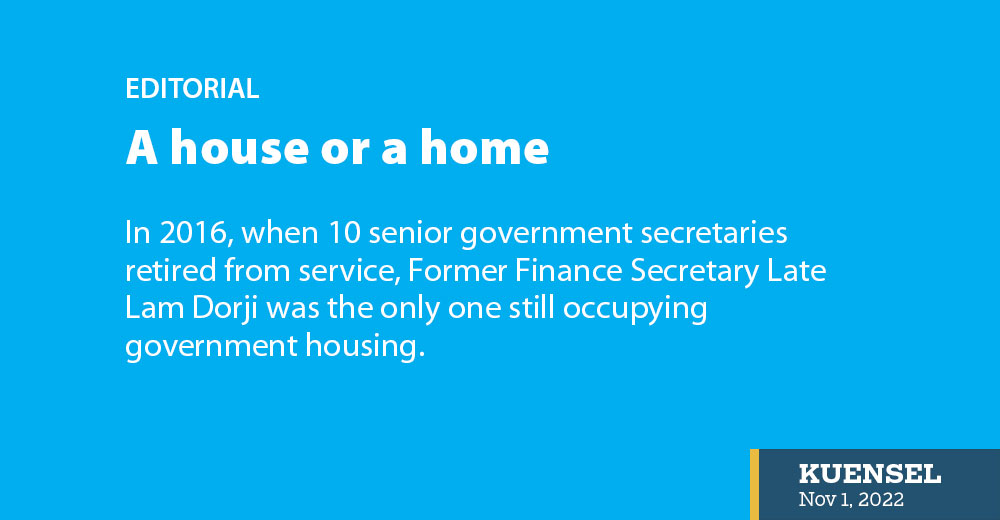In 2016, when 10 senior government secretaries retired from service, Former Finance Secretary Late Lam Dorji was the only one still occupying government housing.
In a long essay, where he gave advice to civil servants on retirement, he wrote: “The security and peace of having a house of your own to live may outweigh any other consideration when you retire.”
His advice was to try to mobilise resources, effort and motivation to build a house to settle after retirement. This is an investment, he said, that civil servants just cannot side-step while they have a job, an income and most of all the energy and drive.
The situation for many civil servants or those in the corporate or private sectors for that matter is no different if not worsened by rising inflation and costs of living in rented accommodation.
Numerous organisations and private firms came up with similar ideas. The problem was not with the ideas or the schemes but land.
Availability of land and access to finance have been the main impediments to our plans and ambitions ever since our planned development began. The issues are not new. And there were attempts to solve them too.
A private firm promoted a home ownership scheme building homes with prefab, which became popular with people in both the civil servants and those in the private sector. However, it crashed when the country was hit by the global pandemic.
In 2013, the National Housing Development Corporation handed over home ownership certificates of apartments in the 12 buildings to 32 families at Changjiji. The houses were built with donor assistance on leased State land.
Home is about comfort and familiarity. We carry that with us, no matter where we are. But sometimes it is something that comes with the safety, security and longevity of ownership. And this is the difference between a housing program, which mainly settle short-term housing shortage, and one that encourages and facilitates home ownership.
A home ownership scheme takes to take the next step. It can do more than just giving a place to live with security deposits or eviction notices. They help connect people to homes where they have ownership.
There are numerous models of home ownership from HDB flats in Singapore to those in Japan, the USA but something homegrown solution taking into account our conditions and difficulties would be the easier to implement.
For example, some observers say NHDC’s current plan could succeed in bringing together aspiring home owners, private landowners, and promoters with a win-win outcome.
Home ownership is vital for an equitable, harmonious society. There is a stark difference between the place where we live and the place we call home.


